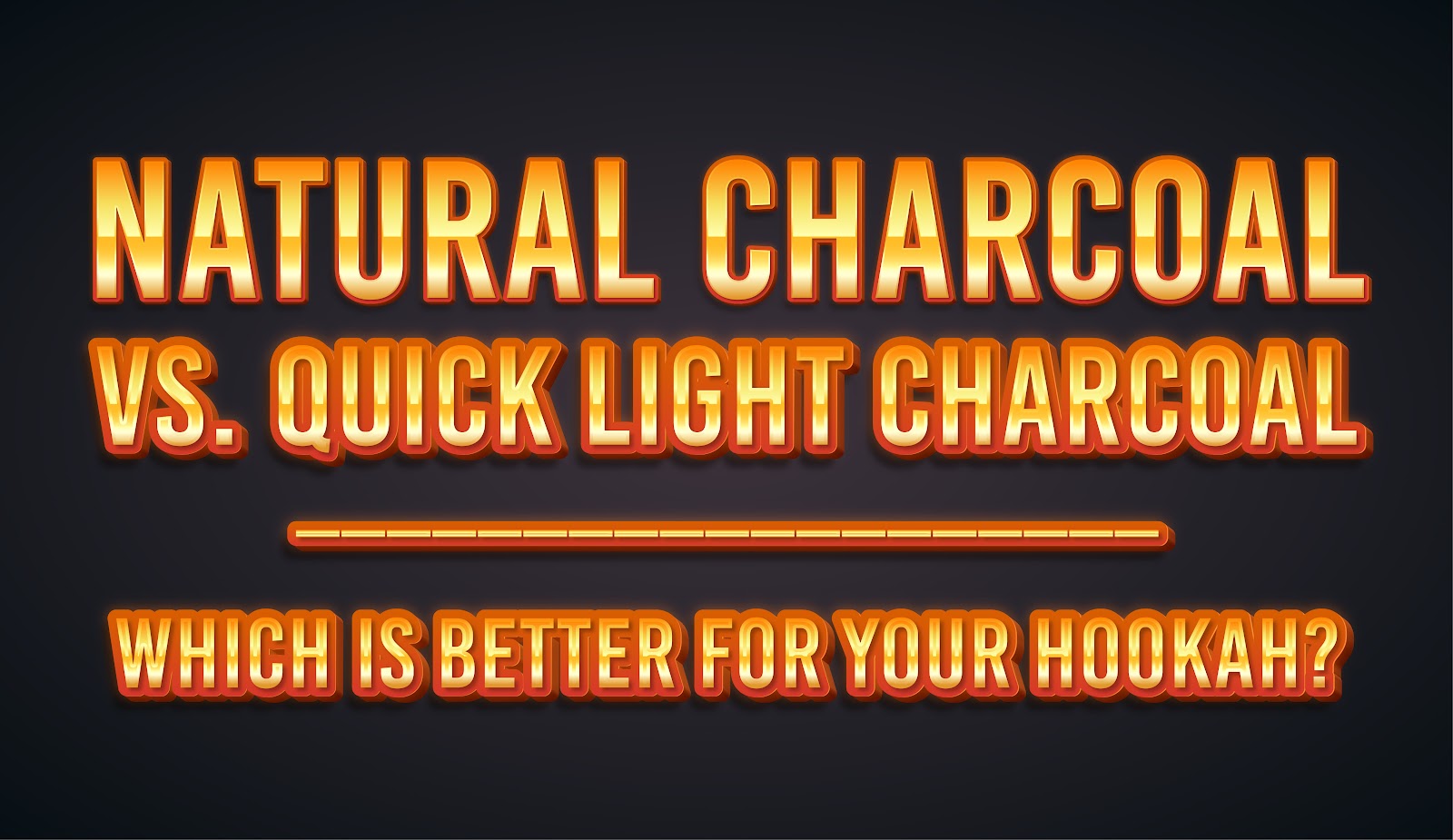
Dec 13 , 2022
Natural Charcoal vs. Quick Light Charcoal - Which Is Better for Your Hookah?
Hookahs need a source of heat to warm shisha tobacco. The hot air circulating through the bowl extracts the flavors from shisha tobacco and you draw delicious clouds, filtered and cooled by the water in the base. The source of heat is hookah charcoal, which has at least two varieties.
You may have used instant or quick light charcoal, a staple that most people get started with for their first hookah. But you may have also heard of natural charcoal. Some users refer to both instant or quick light and natural charcoal as coal. However, neither variety is actually coal.
If you have ever wondered whether you should use natural charcoal or quick light charcoal, this comprehensive assessment will help you to make an informed decision.
Natural Charcoal Is Made of Crushed Coconut Shells
Natural charcoal is referred to as such due to the raw material used to make the final product. In most cases, natural charcoal is made of crushed coconut shells. These coconut husks or shells have traditionally been used for potting soil in ground form and mulch or cover as chips.
The other conventional use of charcoal husks or shells has been fuel or a combustible material, to be precise. Hence, coconut shells are a natural source of heat, and the combustible material is processed to form the various shapes of charcoal you will find for hookahs.
Instant or Quick Light Charcoal Is Derived From Wood
Unlike natural charcoal, instant or quick light variants don’t use coconut shells. The raw material used by most companies is wood. But blocks of wood aren’t the source of instant or quick light charcoal. The material used is saw dust. This aspect shares a similarity with natural charcoal.
The coconut shells used to make natural charcoal are obtained from farms and other sources where the husks are basically a byproduct or waste. Likewise, the wood dust used for any quick light charcoal is a byproduct or waste of woodworking, including large industrial operations.
While charcoal may also be made from many materials, such as cellulose, bones, peat, or other carbonaceous substances, most quick light variants use wood dust or sawdust.
Pros and Cons of Natural Charcoal
Now that you know what natural charcoal is, let me highlight its pros and cons sequentially so that you get an idea of what to expect.
- Natural charcoal is an environmentally-friendly option due to the use of crushed coconut shells that aren’t manufactured or processed using any method with a significant carbon footprint or adverse effect on greenhouse gasses. That’s an enormous positive.
- However, natural charcoal is substantially more expensive than quick light varieties. Most beginners may not want to spend more, especially if anyone needs a lot of charcoal for regular hookah smoking. Plus, there’s an additional cost or at least a chore.
- You can’t use a regular lighter to ignite natural charcoal. You must use a charcoal burner or a gas stove. You can use an electric stove if you have one in your kitchen, but you will need an intermediary. Placing charcoal directly on electric stovetops may leave stains.
- But the extra labor is repaid with clean smoke without any chemicals involved. Natural charcoal doesn’t alter the flavor of your shisha tobacco smoke. Plus, natural charcoal will last significantly longer than quick light variants. Thus, you may not need as many.
Therefore, natural charcoal is a much healthier and superior option if you don’t mind the time it takes to ignite. The extra cost may not have much of a bearing if you need to use fewer pieces for every session. But you will need a charcoal burner, electric lighter, or a gas stove.
Pros and Cons of Quick Light Charcoal
Here are the pros and cons of instant or quick light charcoal:
- You can ignite quick light charcoal with a regular lighter. Most varieties take seconds to ignite, and you may have a thoroughly burning piece in a couple of minutes. In contrast, natural charcoal may take several minutes to start burning adequately for you to use.
- On the flip side, quick light charcoal barely lasts half an hour. If you have a friend over, a set of three to four quick light charcoal pieces for a session may only last twenty minutes or so. In comparison, natural charcoal can easily last around forty minutes or longer.
- The most important issue with quick light charcoal is the chemical accelerant used in the pieces, which essentially facilitates the instant ignition and faster burning. This chemical is usually sulfur-based, and it alters the flavor and texture of shisha tobacco smoke.
- On the positive side, instant or quick light charcoal costs less than natural varieties. So, beginners often find the packs more affordable, but this advantage may get countered if you have to use too many pieces and exhaust your stock quickly.
